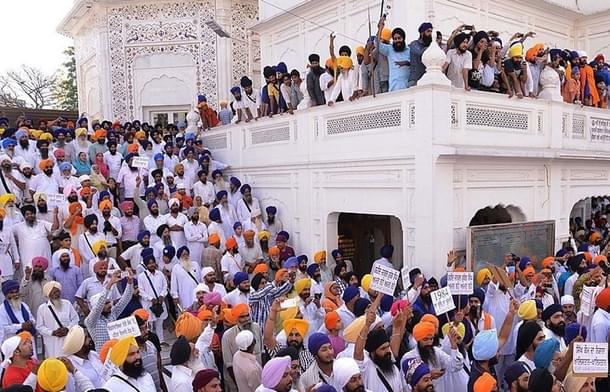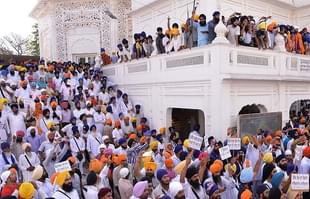Politics
Why The Unpalatable Truths Of Operation Blue Star Need To Be Made Public
Gaurav Dixit
Jun 06, 2016, 04:34 PM | Updated 04:34 PM IST
Save & read from anywhere!
Bookmark stories for easy access on any device or the Swarajya app.


The Sikh diaspora have strong emotional association with their native land Punjab in India. However, after Operation Blue Star took place in 6 June 1984, a large section of the powerful and wealthy Sikh diaspora in Britain, Canada and the US started seeing the Indian state as an oppressor. The operation left an indelible mark on the memories of Sikhs abroad.
It was also the time when the regional demand for separate homeland echoed in the sentiments of the diaspora. The peaceful demand had given way to the more violent Khalistan movement, which was in the beginning a search for a distinctive political identity- a quest for the protection of political rights of Sikhs in India.
An ethno-regional movement distinguished from other regional movements was fought on the line of ethnic distinctiveness such as language and religion to seek an independent sovereign state curved out of India. Initially, it was a political and cultural search for a vague imagined homeland which later turned out to be violent assertive demand for separate independent nation/homeland for the community.
The Sikh Diaspora in Britain and Canada
The Sikh abroad had played crucial role in defining the norms and nature of the separatist movement. It had been an authoritative factor since the movement started shaping into a demand for a homeland for the Sikh living in India and abroad. The involvement of Diaspora ascended during the violent period and subsequently started to decline with the diminution of the militarized movement by mid 1990s.
The influential diaspora still finds solace in the idea of a separate homeland. The proliferation of social media has also connected them virtually to each and every event in Punjab. The cyberspace is effectively and meticulously used by Sikh diaspora for networking, promoting their separatist ideology. The police often call it cyber war for Khalistan.
The UK has become new haven for the subversive activities abroad. Few years back a NIA team was sent to Britain to investigate against a prominent terrorist group Babbar Khalsa International. The team looked at the alleged funding received by the organisation, expected to be around 100 crores in last few years. Two organisations Akhand Kirtnee Jatha and Sikh Organisation for Prisoners Welfare were charged of transferring money to radical groups to revive their activities in Punjab.
In March 2016, the British government dropped radical group the International Sikh Youth Federation (ISYF) from the list of proscribed organisations, after both houses of the British Parliament supported in favour of the motion. Many analysts believe the move has not gone down well in India.
Canada is another country where a section of wealthy Sikh groups have been involved in anti -India activities. According to a Punjab intelligence report submitted to the Ministry of External Affairs and Ministry of Home Affairs, pro-Khalistan terrorists are planning to carry out strikes in Punjab. The report suggests Canadian Sikh Hardeep Nijjar has taken over as the head of Khalistan Terror Force and running a camp near Mission city in British Columbia.
Genuine grievances
Regardless of Subramanian Swamy’s personal opinion on the motives of Operation Blue Star, his demand to make the files public related to it makes sense. The people of the country have a right to know the circumstances under which the decision was taken and the kind of political oversight of Central government.
The declassification will not only satisfy public appetite for full transparency but incisive scrutiny will put an end to the rumour mills. And it certainly will help to bridge the continuing breakdown of trust between political class and the Sikhs across the world.
The sufferings of the Sikh community in the 1984 anti-Sikh riots don’t need recapitulation. Congress the then ruling party, has never owned and apologized for the massacre of innocent Sikhs by its party men. Adding insult to the injury none of the senior leaders has been convicted in more than three decades of judicial ceremony.
Possibly, the shocking lack of accountability from the state and the subsequent derailment of the processes that might lead to justice in the anti-Sikh riot case is a perfect case study of the lack of political will.
And this lack of
political will makes Sikhs abroad wary of Indian state and its institutions. Unless
the government commits itself to providing justice to the victims of 1984 riots
and brings out the unpalatable truths of Operation Blue Star, it’s going to be
tough to turn back the rise of subversive activities abroad.





